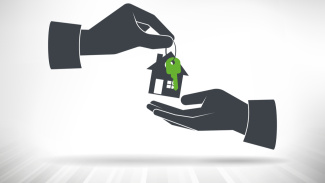Q-and-A: COVID-19 Implications for the Sharing Economy Companies

As the COVID-19 outbreak across the world offers no respite, the majority of companies have had to completely readjust to stay in business. For the sharing economy companies, in particular, the global pandemic has proved to be a menacing adversary.

“I don’t care if you are in New York, São Paulo, Beijing or Ankara. It doesn’t matter if you are in Paris, you are worried about COVID,” said Erik Gordon, a clinical assistant professor at the University of Michigan’s Ross School of Business.
“You’re worried about where you’re going to put your head down at night, about getting into a car that 30 other people have been in. It is a universal worry. And you’re worried in a way you weren’t a year ago. But we cannot forget that globally, there are brands people trust and these brands have a higher chance to pull through the pandemic.”
Gordon, an expert on entrepreneurship, technology commercialization, venture capital, and private equity, discusses his insights on the future of the sharing economy around the world and the difficulties ahead for companies like Airbnb, VRBO, Uber, Lyft and taxi companies, among others.
Not long ago, the sharing economy was a trend and the perfect solution for those wanting to save and to make extra cash. Due to the COVID outbreak and social distancing rules, is it correct to say this industry is no longer attractive?
Gordon: When we think about COVID and the sharing economy industry, we have to think about the two big kinds of sharing ones: lodging and transportation. We have to think about the effects that are driven by the sharing business model and by what is being shared.
First, how much overall travel are people going to be doing, post-COVID compared to pre-COVID, whether it’s business travel or personal travel? You can predict that business travel will come back from the lowest lows of COVID, but you can also predict that it won’t come back to pre-COVID levels.
A lot of businesses have learned they don’t have to do that much travel to get the job done. They can actually deal with customers, without going to see the customer as much. Companies like the big consulting firms have found out they can get the work done without sending out tens of thousands of people every day to see clients. Maybe they have to send out a couple hundred people once a week to see clients, but that is it.
The personal travel side will bounce back a little more than the business travels. People are still going to want to go to Disney World. Depending on where we live in the world, we’re still going to want to go visit New York, Paris, Rome, Tokyo, or Rio de Janeiro. But some of that is going to turn into camping trips and travels that don’t require stays. So overall, the demand for lodging is going to be less because there’s going to be less travel.
What kind of lodging are people going to prefer for the travel that they do?
Gordon: I think there’s going to be a shift there. So until COVID hit, the trend was moving toward Airbnb, like sharing places, and away from hotels and motels for the big chains.
Now, the trend is going to go the other way.
Think of what happens when you go to stay somewhere and it’s not yours or your family’s place. At night, you put your head on a pillow, and you slip your body in between sheets on a bed. Now, that’s pretty scary. You’re gonna breathe in all of that air, you’re going to go into a shower, you’re going to put your hands on the faucets on a sink. Who are you going to trust more to keep it clean? I don’t know that you’re going to really trust anybody a lot, but who are you going to trust more?
Will consumer trust be the greatest asset of major hotel chains for a potential economic recovery?
Gordon: Are you going to trust Hilton and Accor or are you going to trust somebody you don’t even know who they are? Hilton and Accor, for example, have spent hundreds of millions of dollars building a brand name. Reputation is very valuable to them. If people go to their hotels and get sick and die, they can lose hundreds of millions of dollars in brand name value. So they have an investment to protect. They also are big enough to invest in technology. They have a lot of control.
In the shared model, there’s much less control. But that’s part of the shared model that’s specific to the lodging industry. If you’re managing the hotel, those people are your employees and you tell them what to do, you set the procedures and you can send in your inspectors. In the shared model, that’s prohibitively expensive. Hilton can, for example, send from its corporate office an inspector who visits a hotel and looks at 200 or 500 rooms or even 1,200 rooms in one hotel property. Airbnb can’t really do that.
Will consumers follow the same reasoning when they need transportation?
Gordon: It is kind of the same, but I think not quite as severe. It depends on what you think your options are — if your travel option is to buy a car or to use a car. If you have a car, you know how clean that car is and probably not a lot of people have been in that car. But you do know there weren’t 40 people in the car yesterday and maybe 50 the day before and 300 people in the car the week before.
I think we’re going to see people who were just trying to live in big cities now trying to live in the suburbs, and they’re going to try to have private cars. Not everybody. Big cities like New York, Tokyo, and São Paulo are not going to have zero people, but the big waves of young people who were very eager to get to a big city will be less eager now and some of them will even be interested in moving out.
A lot of people are thinking about going virtual at their job permanently, so they don’t have to deal with public transit or walk down a sidewalk with lots of other people. They want to be socially distanced. I think the demand for shared transportation, whether it’s Uber, Lyft, or taxi companies, is going to decrease. Public transportation, like buses, trains, subways, is even scarier. I think people are going to shift toward buying a car, even if it’s inconvenient and more expensive, because they’re afraid.
Is this a global reality?
Gordon: Of course, there are some countries where they pay more attention to the drivers, maybe the Airbnb people pay more attention to the houses. Or not. But globally, they still have very little control. In some countries, they do more investigation of the shared cars. In some companies, they require the driver to get benefits as if he or she is an employee. But they still don’t have control over the condition of the car or the condition of the lodging.
How do you foresee the future of the sharing economy?
Gordon: I think these companies are going to have to take real measures to increase customer confidence in the safety of cars and lodging. They are going to have to spend a lot of money to convince people that it is safe to go put your head on a pillow in an Airbnb or sit in a car shared by a hundred others.







